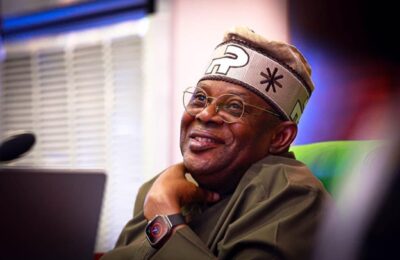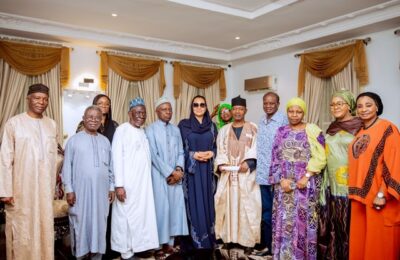There is a stirring in the political soul of Ane-Igala — a subtle tremor in the heart of a once-formidable nation long fractured by ambition, betrayal, and the cannibalism of its own genius. In the last few weeks, the winds of reconciliation have begun to whisper again across the land. From the re-engagement of Hon. Friday Sani (Makama) to the détente between Elder Simon Achuba and Chief Edward Onoja, and most notably the rapprochement between Alhaji Muritala Ajaka and Chief Onoja, there emerges a new rhetoric of unity — cautious, fragile, yet pregnant with political possibility.
But beneath the surface of these handshakes and photo opportunities lies a moral interrogation: Is this reconciliation born of conviction or convenience? For the Igala nation, long diminished by the pettiness of its political elite, the question is no longer who apologised to whom — it is whether the repentance now proclaimed in public will translate into a sustained political reawakening anchored on collective survival.
True reconciliation cannot be a spectacle for political cameras. It must be an ideological surgery — a radical cleansing of the conscience of a people who have allowed personal ambition to eclipse national essence. What the Igala political class calls reconciliation must therefore evolve into restitution — a moral reconstruction of the very foundation upon which Igala politics was once built: sacrifice, loyalty, and duty to the motherland.
Across the arc of Igala history, the blood of martyrs still cries from beneath the earth. Princess Inikpi’s sacred submission to death, Oma-Odoko’s stoic resistance, Attah Ameh Oboni’s principled defiance, and Dr. Stephen Makoji Achema’s democratic idealism are not mere folklore; they are spiritual indictments against a generation of leaders who have commodified the Igala destiny for stipends and political shelter. Prince Abubakar Audu’s audacity, though imperfect, stood as the last coherent symbol of Igala ascendancy — a reminder that destiny often bows only to conviction.
Today, the Igala political sphere resembles a fragmented orchestra — each player performing a self-serving solo, while the collective symphony of national purpose lies silent. What should have been a chorus of unity has become an echo chamber of betrayal and lack of team spirits. The result is a once-dominant people now confined to the periphery of Kogi’s political relevance, watching as strangers dictate the rhythm of their fate.
This tragedy, however, is not irreversible. The recent gestures of rapprochement, though politically cautious, signal a possible ideological rupture — a rare opportunity for the Igala elite to redeem themselves from the ruins of vanity. But redemption must be institutionalised, not improvised. The Igala people are in dire need of a grand coalition of conscience — an ideological bloc that transcends the narrow architecture of existing parties.
The time has come for a new political platform — one that redefines power not as privilege but as responsibility. The existing partisan labels have become graveyards of sincerity; they have served more as instruments of division than vehicles of progress. What the Igala nation requires now is not another transient pact sealed by convenience, but a political covenant sanctified by truth — a movement that reclaims the moral centre of Igala politics and repositions it as a force of regional and national balance.
Such a movement must be grounded in meritocratic leadership, ethical governance, and socio-economic realism. The Igala man must once again see politics not as an avenue for personal enrichment, but as a vocation of stewardship. Our leaders must understand that patriotism is not the rhetoric of loyalty but the praxis of sacrifice. For every act of betrayal, there must be consequences; and for every demonstration of fidelity to the common good, there must be honour.
As the philosopher Niccolò Machiavelli once warned, “The ruin of states begins when men of ambition outrun men of virtue.” The Igala nation has suffered this ruin long enough. The current reconciliatory overtures must therefore not end in mere handshakes; they must evolve into a comprehensive doctrine of accountability — one that publicly celebrates patriotism and politically ostracises treachery.
The traditional institutions, socio-cultural bodies, and youth intelligentsia must rise as moral arbiters of this new dispensation. They must refuse to be rented instruments of propaganda and instead become guardians of the new Igala covenant. It is time to elevate loyalty from individuals to institutions, from godfathers to generations, from transient power brokers to the enduring ideals of justice, unity, and progress.
The road ahead demands courage — not the counterfeit courage of speeches, but the audacious will to dismantle the old order of political feudalism. Let those who betrayed the Igala cause repent in deeds, not in diction. Let those who once sold the people’s dignity for political comfort now invest their influence in building structures of generational equity.
The reconciliation we seek must not be an emotional truce but an intellectual revolution — one that rewrites the Igala political narrative from the language of lamentation to the grammar of vision. Only then can Ane-Igala rise again — not as a divided relic of lost glory, but as a cohesive force of moral and political renaissance.
If the Igala elite fail to seize this moment, history will not absolve them. But if they rise with courage, discipline, and ideological clarity, the nation will once again witness the rebirth of a people whose greatness was forged in sacrifice, not in self-interest.
For reconciliation without reform is hypocrisy, and forgiveness without structure is futility. The Igala nation must now choose — between a politics of sentiment and a politics of survival. The time for cautious unity has passed. The hour of decisive coalition has come.
– Inah Boniface Ocholi writes from Ayah – Igalamela/Odolu LGA, Kogi state.
08152094428 (SMS Only)




